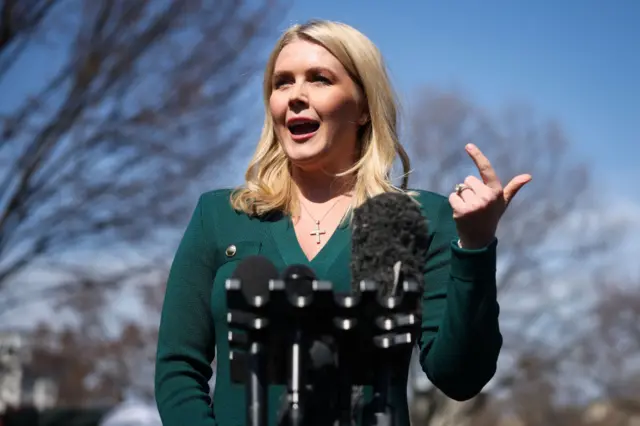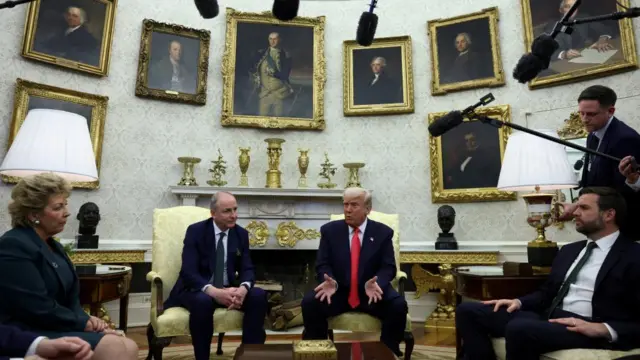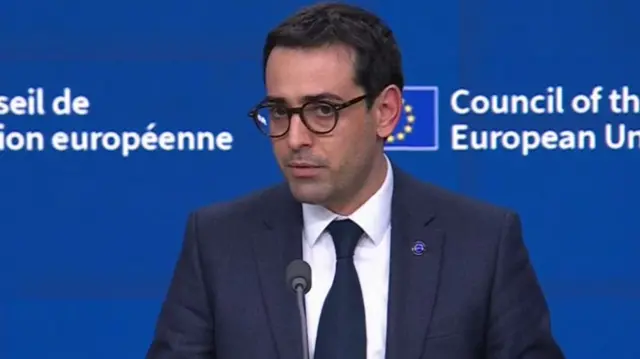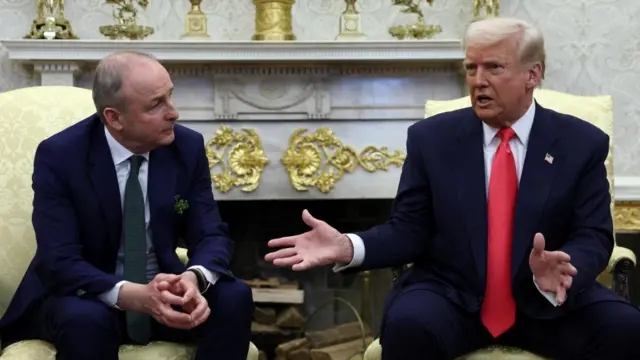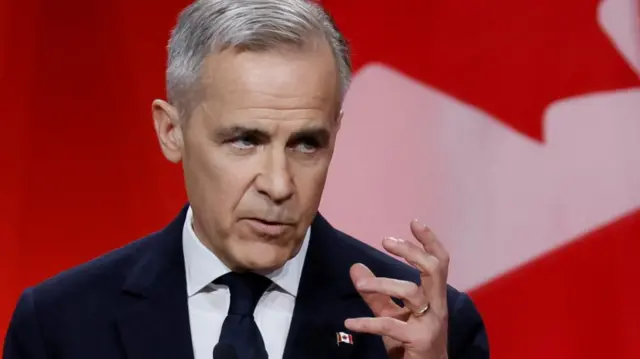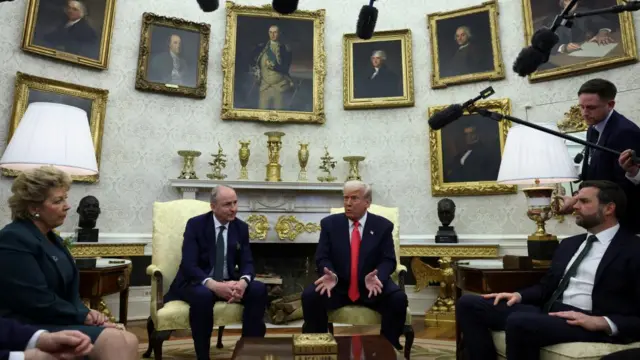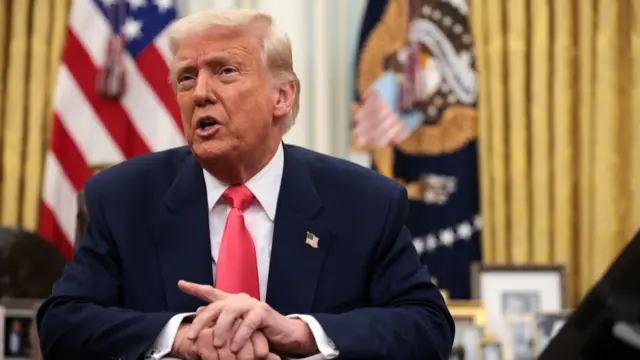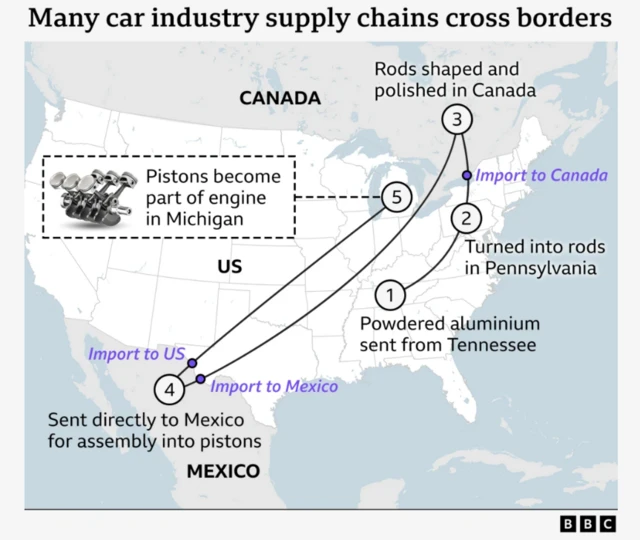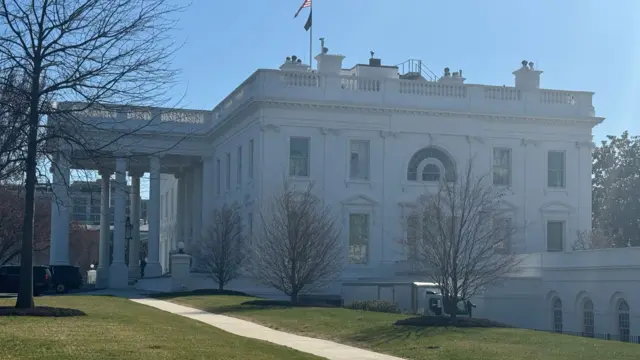Unclear how tariffs will address imbalances in metal tradepublished at 20:06 GMT 12 March
 Michelle Fleury
Michelle Fleury
New York business correspondent
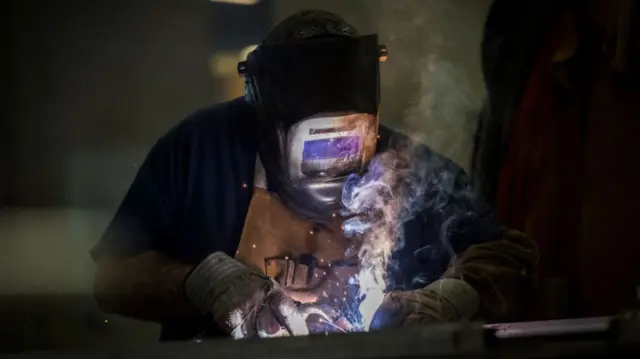 Image source, Getty Images
Image source, Getty ImagesIn what's already been a wild week for trade moves, Donald Trump's 25% tariffs on steel and aluminium imports have kicked in - a reboot and expansion of policies he first tried back in 2018.
And like last go around, it's unclear whether this supercharged version will address the fundamental imbalances in the metals trade or simply provoke retaliation - as we've already seen from the EU and Canada.
This week's World of Business newsletter - you can sign up here - explores how the scenario might develop, as well as examining the likelihood of a recession in the US.
The outlook? The US steel industry, which has been underperforming, is welcoming the tariffs as a boost to domestic production.
But, the aluminium industry, which is heavily reliant on Canadian imports, warns the tariffs will drive up costs and hurt competitiveness.
You can read on here for more on how the larger issue of China's overcapacity remains unresolved - and how reciprocal tariffs set to roll out in April may have a far greater impact worldwide.

